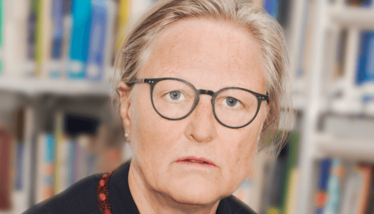Time to Transform (Re)search and Development
The drug development system is broken; the COVID-19 pandemic is an opportunity to take a bold step towards accessible and affordable therapies
Claudia Wild | | Opinion

“European Parliament backs WHO effort to create a COVID-19 technology access pool”
“Re-examination of trade secrets: EC opens consultation on intellectual property (IP) rights to promote smarter use and fair play”
The above are just two of many recent headlines featuring new initiatives to help combat COVID-19 and streamline drug development. The pandemic has lent a new urgency to debates that have been rumbling on for years among legal experts and agents of civil society, pushing regulatory bodies to make long overdue policy changes. With regard to targeted public research funding for the development of therapies and compulsory licensing, we must ensure that the strategies and experience gained during the COVID-19 pandemic are applied across the board.
The COVID-19 pandemic reminds us of the serious systemic mistakes that we have allowed to happen over past decades: a drug research and development (R&D) system that publicly funds the majority of high-risk basic research, but then sells the findings without conditions and privatizes the profits without hesitation – only for the public to buy the same drugs back again at exorbitant prices.
It has been widely acknowledged for decades that the current system is not working. The former Dutch Minister of Health Edith Schippers put it this way in 2016: “The system is broken... Patent and intellectual property exclusivities are the only cornerstone of the current model. Companies can ask the price they like. This will no longer do. We need to develop alternative business models...” (1) The pandemic could be a catalyst for change, if public institutions recognize the opportunity to transform a “rotten” system.
In early May, the European Commission (EC) – in cooperation with the World Health Organization (WHO) – showed leadership by organizing a pledging conference (in which the USA did not participate) to raise public research funds for COVID-19 interventions. In total, 7.4 billion euros of public research funds have been made available internationally for COVID-19 interventions. Public R&D funding comes with pre-defined conditions (open science practices and license-free availability).
Now is the time to examine whether patent protection merely serves to justify an excessive pricing policy or whether it actually promotes innovation. Already, new models for drug development – outside of the traditional patent system – are being practiced in some COVID-19 initiatives, with targets and milestones in development and predetermined conditions for market access.
There is an opportunity to tailor not only research funding but also drug and medical product development in favor of open access to essential medicines, thus dispelling the widespread myth that only the private sector is capable of creating value and providing impetus for innovation. The fact that the public sector is not only responsible for creating the political and legal framework for the functioning of market-based value creation, but also plays a major role in technological success, especially for pharmaceutical products and medical technology, is largely ignored.
A recent study investigated the share of funding provided by the US National Institute of Health (NIH) by examining the financing of all 210 drugs approved by the FDA between 2010 and 2016 (2). The authors found that more than $100 billion of NIH research funds – around 20 percent of its total research spend – was spent on basic research for drugs which later received approval. Basic research for the 84 “first-in-class” drugs alone accounted for $64 billion of NIH research funds, an average of $760 million per drug.
Various other recent analyses have shown that a large proportion of new drugs are discovered as a result of public funding. Consequently, drug companies are able to focus on development, marketing, and sales of the most profitable innovations, while reducing in-house research departments. Instead of “research and development,” the strategy is “search and development.”
Until a few years ago, the term “access to medicines” was associated with discussions about cheaper medicines for developing countries. For some time now, European institutions have also been dealing with access to medicines, with numerous analyses and reports discussing solutions to unsustainable prices of medicines.
The COVID-19 pandemic and the research funding publicly launched by the WHO and the EU donor conference have been accompanied by demands from non-governmental organizations (such as Drugs for Neglected Diseases Initiative, Médecins Sans Frontières, the European consumer organisation BEUC, European Alliance for Responsible R&D and Affordable Medicines, Public Eye, Public Citizen, and Health Action International) – and governmental and business related institutions (for example, OECD) – for alternative models of drug research, development and production.
One proposal is that public R&D funding must be accompanied by pre-agreed conditions. These conditions range from open science principles and practices, such as public platforms for the exchange of research results (open access to data), timely access to innovations through open patent pools, and royalty-free availability (non-exclusive licenses) to prevent supply shortages.
The response to the COVID-19 pandemic has shown us that there are more sustainable ways to approach drug development. However, for these approaches to find success, a much more active role of public bodies in the development and testing of medicines, as well as in legal and regulation issues, is crucial.
- E Schippers, Medicines Law & Policy, EU Review of Pharmaceutical Incentives: Suggestions for Change (2019). Available at https://bit.ly/3hlI4w8.
- E Cleary et al., “Contribution of NIH funding to new drug approvals 2010–2016,” PNAS 115, 2329-2334 (2018).



















